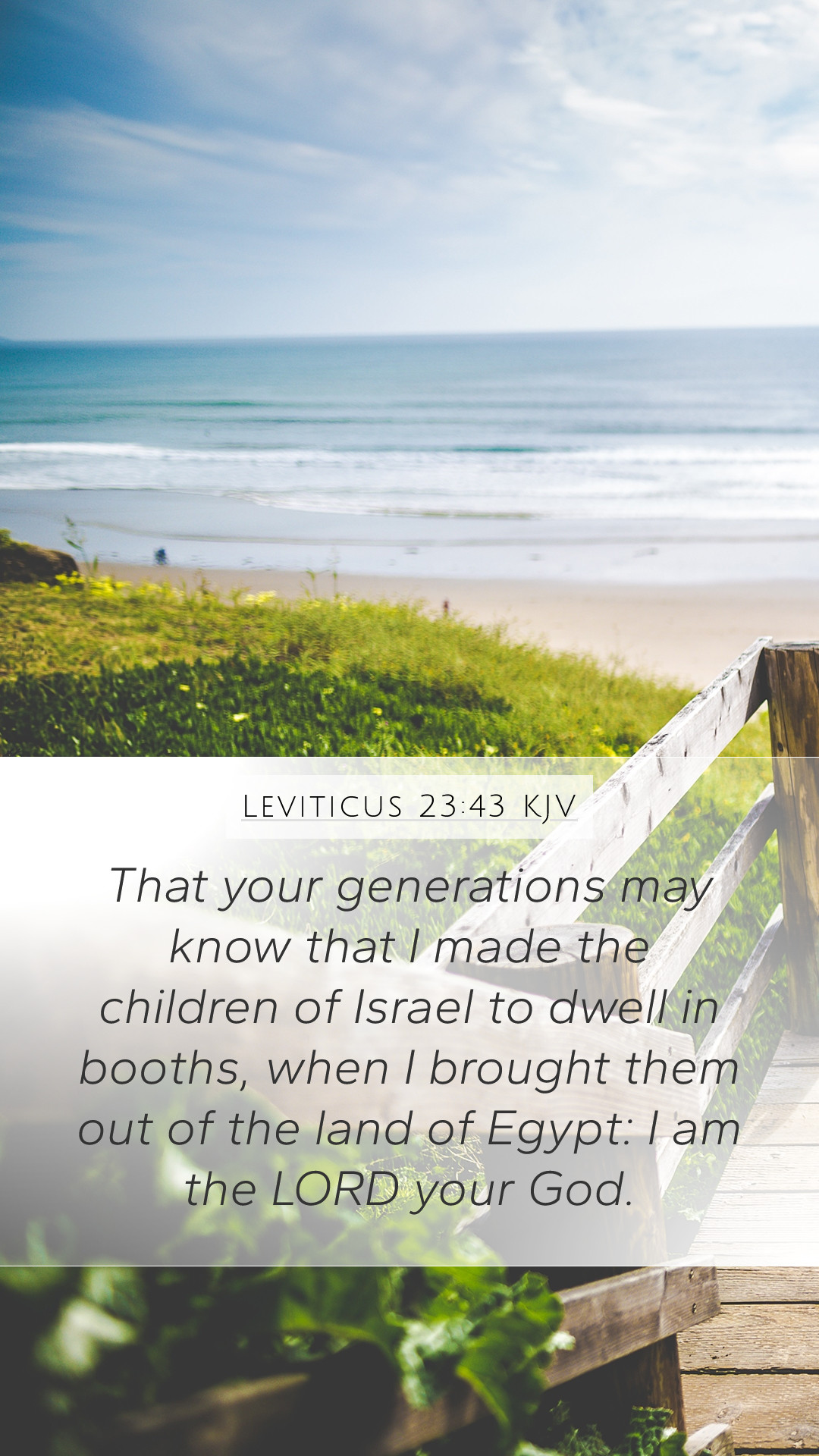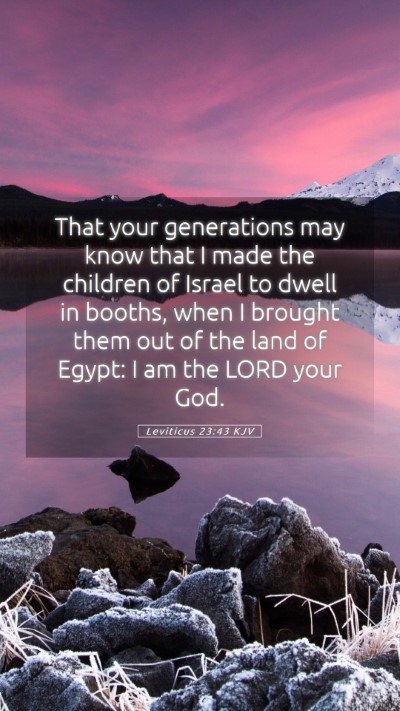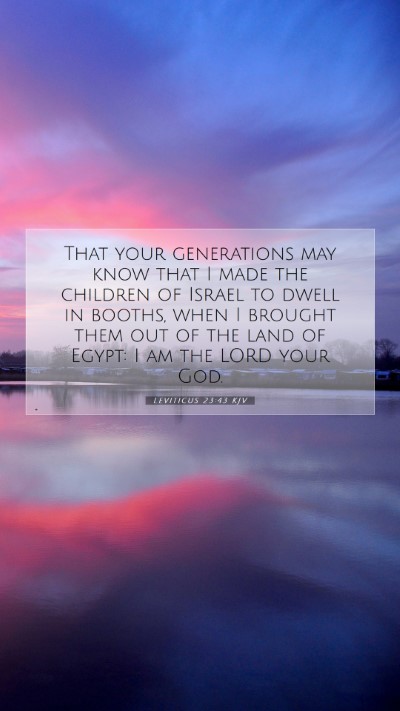Bible Verse Commentary: Leviticus 23:43
Verse: "That your generations may know that I made the children of Israel to dwell in booths when I brought them out of the land of Egypt: I am the LORD your God." (Leviticus 23:43)
Introduction:
This verse is integral in understanding the significance of the Feast of Tabernacles (Sukkot) and the importance of remembering God's provision and deliverance. It emphasizes the lessons of dependence on God and the historical context of Israel's wandering in the wilderness after their Exodus from Egypt.
Biblical Exegesis
The Hebrew term for “booths” (sukkot) refers to temporary shelters, signifying the nomadic lifestyle of the Israelites during their 40 years in the wilderness. This passage not only commemorates that historical period but also serves as a reminder of God's protective care dwelling among His people.
Meaning of the Verse
The central theme of Leviticus 23:43 is remembrance and acknowledgment of God's faithfulness. The directive for future generations to observe the feast is a call to reflect on God's past actions and His sustaining grace.
1. Remembrance of Deliverance
The act of dwelling in booths during the Feast of Tabernacles is symbolic of the Israelites' dependence on God during a time of pilgrimage and uncertainty. Matthew Henry notes that remembering these events fosters gratitude and reinforces faith.
2. God's Presence
Albert Barnes emphasizes that these booths served to remind the people of God's constant presence and guidance. Understanding Scripture entails recognizing how these practices connect the people to their history and identity as God's chosen ones.
3. Instruction to Future Generations
Adam Clarke highlights the educational aspect, suggesting that each generation must learn the importance of these celebrations. The continuity of tradition is vital in instilling faith and godliness in subsequent generations.
Application of Leviticus 23:43
Applying this verse to daily life involves recognizing God's workings in our lives and the necessity of remembrance in faith practices. Understanding difficult Bible passages often requires contextual knowledge and reflection on their implications for believers today.
1. Historical Context
Understanding this verse also requires a grasp of the historical context in which it was given. Israel's experience in the wilderness was a formative phase of their identity. These booths symbolize the transition from slavery to a covenant relationship with God.
2. Contemporary Reflection
For modern believers, Leviticus 23:43 reminds us of God's guidance and the importance of spiritual practices that foster remembrance. Bible study insights can help us draw parallels between ancient practices and contemporary faith walks.
Related Bible Cross References
- Exodus 12:17: Discusses the significance of the Passover and deliverance from Egypt.
- Deuteronomy 16:13-15: Outlines the celebration of the Feast of Tabernacles and its joyous nature.
- John 7:2: Refers to Jesus attending the Feast of Tabernacles, signifying its continuing relevance.
- Psalm 107:2: Encourages the redeemed to proclaim God's goodness, supporting the theme of remembrance.
- Hebrews 11:13-16: Discusses the nature of faith and hope in God's promises, linking to the imagery of temporary dwelling.
Conclusion:
In summary, Leviticus 23:43 is a profound reminder of God’s faithfulness throughout generations and the importance of remembering our spiritual heritage. Bible verse commentary here draws attention to the depth of meaning in seemingly simple directives, emphasizing the need for continual learning and reflection in our walk of faith.


